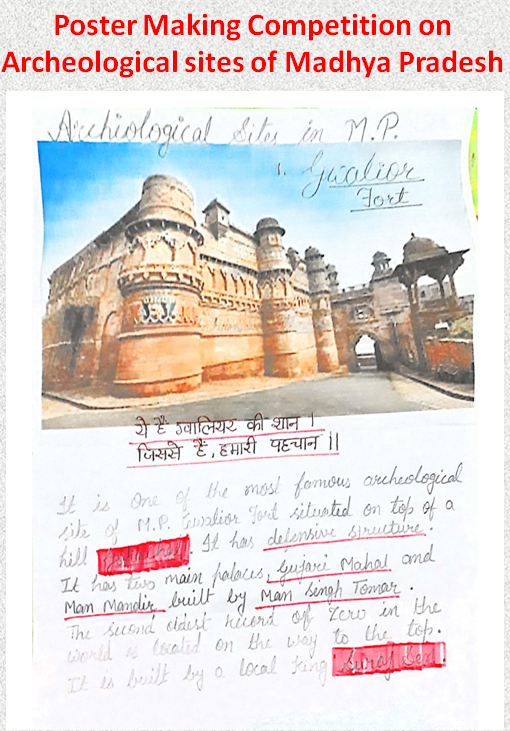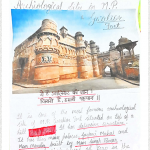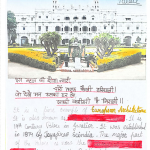
From the Editor's Pen
After holding months of online classes and even conducting the exams through distant mode, now the government and schools have permitted the children to come for attending the class and appearing in the exams in offline mode. The students are very much excited after coming back to the school and the school premise is equally ready to give them a warm welcome.
Reopening of the schools would be very beneficiary for the children as many behavioral changes have been observed in children like negative attitude, bunking online classes and aggression etc. They have started misusing the gadgets meant for educational purpose. Students felt loss of confidence and low motivation which otherwise was possible in regular school days.
Health is always a priority as life is precious and so are the values. But even in a state of dilemma, moving ahead and learning is a continuous process. So looking at the situation optimistically. we hope that further the situation would be safe and the children would be in the school again.
Miss Poornima Gangele, Staff Editor, AMI

Archeological sites of Madhya Pradesh

Recipe of the Month

आम का पेड़ .......... प्रेरक एवं अनुकरणीय कहानी

The contribution Manipur and Nagaland in freedom struggle of India
-

आम का पेड़ .......... प्रेरक एवं अनुकरणीय कहानी
"बच्चे ने आम के पेड से कहा,"अब मेरी खेलने की उम्र नही है मुझे पढना है,लेकिन मेरे पास फीस भरने के पैसे नही है।"पेड ने कहा, "तू मेरे आम लेकर बाजार मे बेच दे,इससे जो पैसे मिले अपनी फीस भर देना।"उस बच्चे ने आम के पेड से सारे आम तोड़ लिए और उन सब आमो को लेकर वहा से चला गया।उसके बाद फिर कभी दिखाई नही दिया। आम का पेड उसकी राह देखता रहता।एक दिन वो फिर आया और कहने लगा,"अब मुझे नौकरी मिल गई है, मेरी शादी हो चुकी है,मुझे मेरा अपना घर बनाना है,इसके लिए मेरे पास अब पैसे नही है।"आम के पेड ने कहा, "तू मेरी सभी डाली को काट कर ले जा,उससे अपना घर बना ले।"उस जवान ने पेड की सभी डाली काट ली और ले के चला गया। आम के पेड के पास अब कुछ नहीं था वो अब बिल्कुल बंजर हो गया था।कोई उसे देखता भी नहीं था। पेड ने भी अब वो बालक/जवान उसके पास फिर आयेगा यह उम्मीद छोड दी थी।फिर एक दिन अचानक वहाँ एक बुढा आदमी आया।एक बच्चे को आम का पेड़ बहुत पसंद था।जब भी फुर्सत मिलती वो आम के पेड के पास पहुच जाता। पेड के उपर चढ़ता,आम खाता,खेलता और थक जाने पर उसी की छाया मे सो जाता। उस बच्चे और आम के पेड के बीच एक अनोखा रिश्ता बन गया।बच्चा जैसे-जैसे बडा होता गया वैसे-वैसे उसने पेड के पास आना कम कर दिया। कुछ समय बाद तो बिल्कुल ही बंद हो गया।आम का पेड उस बालक को याद करके अकेला रोता।एक दिन अचानक पेड ने उस बच्चे को अपनी तरफ आते देखा और पास आने पर कहा,"तू कहां चला गया था? मै रोज तुम्हे याद किया करता था। चलो आज फिर से दोनो खेलते है उसने आम के पेड से कहा,"शायद आपने मुझे नही पहचाना, मैं वही बालक हूं जो बार-बार आपके पास आता और आप हमेशा अपने टुकड़े काटकर भी मेरी मदद करते थे।"
आम के पेड ने दु:ख के साथ कहा,"पर बेटा मेरे पास अब ऐसा कुछ भी नही जो मै तुम्हे दे सकु।“ वृद्ध ने आंखो मे आंसु लिए कहा,"आज मै आपसे कुछ लेने नही आया हूं बल्कि आज तो मुझे आपके साथ जी भरके खेलना है,आपकी गोद मे सर रखकर सो जाना है।"इतना कहकर वो आम के पेड से लिपट गया और आम के पेड की सुखी हुई डाली फिर से अंकुरित हो उठी।वो आम का पेड़ कोई और नही हमारे माता-पिता हैं दोस्तों ।जब छोटे थे उनके साथ खेलना अच्छा लगता था। जैसे-जैसे बडे होते चले गये उनसे दुर होते गये।पास भी तब आये जब कोई जरूरत पडी,कोई समस्या खडी हुई।आज कई माँ बाप उस बंजर पेड की तरह अपने बच्चों की राह देख रहे है।जाकर उनसे लिपटे,उनके गले लग जायेंफिर देखना वृद्धावस्था में उनका जीवन फिरसे अंकुरित हो उठेगा..!--आप से प्रार्थना करता हूँ यदि ये कहानी अच्छी लगी हो तो कृपया ज्यादा से ज्यादा लोगों को भेजें तथाअगली पीडी से निवेदन/समझाइश है कि, वे आपने माता-पिता की परवाह/देख रेख करें तथा आदर एवं स्नेह प्रदान करें
....!???आप का दिन मंगलमय हो? - मीरा चौहान -

The contribution Manipur and Nagaland in freedom struggle of India
Paona Brajabashi: Manipur soldier who declared war against the British becoming a great epitome of Freedom Fighter: 3rd Battle of Anglo Manipur War For seven hundred years, from 1110 till 1819, the Kingdom of Kangleipak (Kingdom of Manipur) reigned over the area of modern-day Manipur uninterrupted.The kingdom’s eventual downfall began in 1819, when the Kingdom of Burma, under Emperor Bawdawpay, invaded and annexed Manipur.Paona Brajabasi[1] was a Manipuri military officer. He was born in 1833 and later entering the military of the Manipur Kingdom, reaching the rank of major by 1891. The same year he was fought in the Anglo-Manipur War against the British Empire. Following the defeat of his troops in a skirmish with the British, his adversaries offered to spare Brajabasi's life if he entered their service. Brajabasi refused and was subsequently executed. This act entered Manipuri popular imagination and Brajabasi has since been commemorated by a statue Rani Gaidinliu
“We are free people, the white men should not rule over us,” said a 13-year-old Rani Gaidinliu of the Rongmei Naga tribe in 1927, while issuing a clarion call to all ethnic Naga tribes from remote hills of the northeastern region.The same year, she joined the Heraka religious reform movement begun by her cousin Haipou Jadonang, which sought to standardise the traditional Naga belief systems against the growing influence of Christianity and Vaishnavism.Under her guidance, the movement later turned into a political movement seeking to kick the British out from the region.
She urged the people not to pay taxes, not work for the British and even went underground to lead many attacks on the colonial administration.
She was arrested in 1932 at the age of 16, and sentenced to life imprisonment. Jawaharlal Nehru met her at Shillong Jail in 1937, and gave her the title of Rani. Released in 1947 after India’s independence, she continued to work for the upliftment of her people.
Haipou Jadonang A Rongmei Naga leader from present-day Manipur, he was a spiritual leader, social reformist, and political leader who sought to emancipate the Naga people from the clutches of British colonial rule during the early decades of the 20th century.Jadonang was seen as a spiritual figure early in life, garnering the attention of neighbouring villages, especially folks from the Zeliangrong tribal community — an important indigenous Naga communities living in the tri-junction of Assam, Manipur and Nagaland — under which the Rongmei Nagas fell. Aside from the Heraka movement, he started building an army, which he called ‘Riphen’. Comprising 500 men and women at its zenith, the army was well-versed in military tactics, weaponry and reconnaissance missions.It was also organised in civilian matters, assisting with farming, livestock grazing, and firewood collection, among other activities. Jadonang composed songs singing praises of the struggle against the British, which his disciple Rani Gaidinliu imparted to his followers.
Name :- Kavya Agrawal Class 10th B











